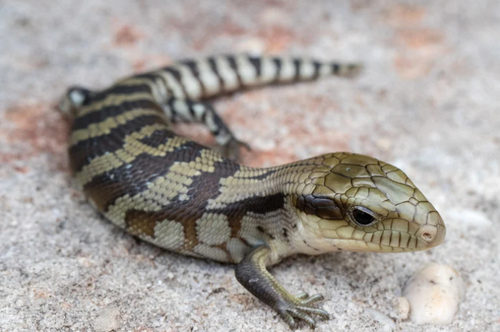Providing Food and Water After Brumation
28th Aug 2025
Providing Food and Water After Brumation
When reptiles wake from brumation, their bodies need time to rehydrate and adjust before resuming a normal feeding routine. Properly managing food and water at this stage is critical for a smooth and healthy transition back into activity.
Step 1: Rehydration Comes First
The first priority after brumation is hydration. Many reptiles will have reduced water intake during their dormant phase, so it’s essential to restore fluids before offering food.
-
Always provide fresh, clean water as soon as your reptile wakes.
-
Consider offering a shallow soaking dish for species like turtles, blue tongues, or bearded dragons that may benefit from absorbing water through the skin or cloaca.
-
For snakes and lizards, gentle misting or a warm soak can encourage drinking and rehydration.
Step 2: Start Feeding Slowly
Once your reptile is alert, hydrated, and basking normally, you can begin to reintroduce food. Start with small, easily digestible meals to avoid stressing their digestive system.
-
Live crickets – excellent for stimulating hunting instincts.
-
Mealworms and superworms – high in protein and energy for rebuilding strength.
-
Black soldier fly larvae – calcium-rich and gentle on the stomach.
Offer food in smaller portions at first, then gradually increase frequency and size as appetite returns.
Step 3: Supplement with Easy Options
Some reptiles may be slow to eat live prey after brumation. Supplementary foods can help bridge the gap:
-
Insect and fruit purees provide a soft, nourishing option packed with crickets, dubia roaches, silkworms and Hornworms.
-
These purees are perfect for wildlife carers, young reptiles, or pets that need encouragement to start eating again.
Step 4: Monitor Appetite and Health
Keep a close eye on how your reptile responds:
-
Healthy reptiles should gradually regain appetite within a few days.
-
If your reptile refuses food or water after a week, shows severe weight loss, or appears lethargic, seek veterinary advice.
Step 5: Rotate and Enrich Feeding
Feeding should be both nutritious and stimulating. Scatter-feeding live insects or using feeding stations encourages natural hunting and keeps reptiles active. Variety is key — mixing up crickets, worms, larvae, and gels ensures balanced nutrition.
Supporting Products from BioSupplies
At BioSupplies, we provide everything you need to support reptiles after brumation:
-
Live insects – crickets, mealworms, superworms, and black soldier fly larvae.
-
Supplementary foods – including our popular CrickiPuree insect and fruit gels.
-
Feeding bowls and water dishes – durable and easy to clean.
Final Thoughts
After brumation, the focus should always be on hydration first, then gradually reintroducing small, nutritious meals. By offering fresh water, a variety of live foods, and convenient supplements, you’ll help your reptile regain strength and thrive throughout the warmer months.
Explore the full range of BioSupplies reptile foods to get your reptiles back on track this season.

